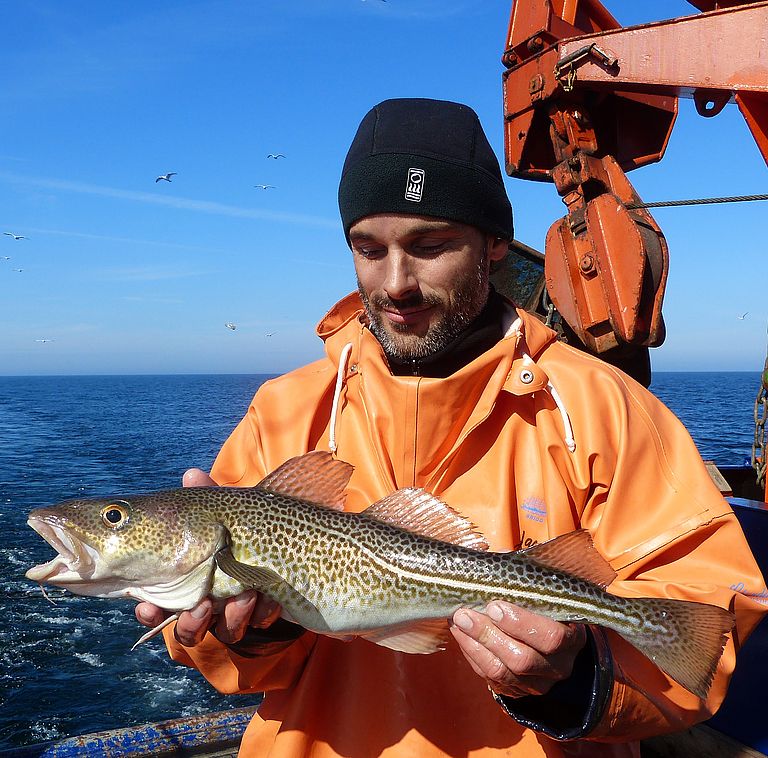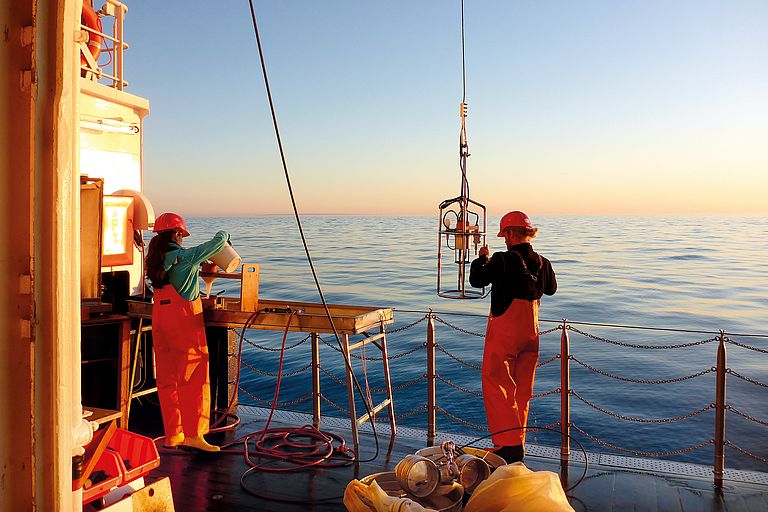Networking for a healthier Baltic Sea
GEOMAR marine biologist Dr. Jan Dierking elected as Björn Carlsons Baltic Fellow
The Baltic Sea suffers from human impacts such as environmental contaminants, eutrophication, and overfishing – which in turn affects people in the nine neighboring countries. In order to join forces for a positive development, the Björn Carlsons Baltic Fellows has been initiated on commission by the Björn Carlsons Östersjöstiftelse (Björn Carlsons Baltic Sea Foundation). The network aims to connect future research leaders around the Baltic Sea to stimulate innovation and collaboration and contribute to a healthier and better-managed Baltic Sea.
The network consists of 22 selected young researchers from the countries around the Baltic Sea, whose work is focused on the Baltic Sea and its environment. Dr. Jan Dierking, marine biologist at GEOMAR Helmholtz Centre for Ocean Research Kiel represents Germany together with Dr. Isabell Klawonn from Leibniz Institute for Baltic Sea Research Warnemünde. Dr. Dierking was selected for his research on the trophic ecology of marine fishes and jellyfish and the role of marine food webs in the mediation of anthropogenic pressures.
“My hope is that our group of Björn Carlsons Baltic Fellows will be able to promote knowledge of the Baltic Sea, the uniqueness and beauty of this system, the challenges that is facing due to climate change and human uses, and of possible solutions to the public. I am thrilled by the potential to work together and pursue ideas in this international group, with Fellows from countries around the Baltic and with such strong and diverse research profiles represented”, says Dr. Jan Dierking.
From 2005 to 2020, Björn Carlsons Östersjöstiftelse (Baltic Sea 2020) allocated grants totaling 650 million Swedish Crowns for research and applied projects for the Baltic Sea. The foundation is now making a long-term investment in the development of Björn Carlsons Baltic Fellows and the future decision-makers in Baltic Sea research.
“With the foundation’s support, we hope that the Björn Carlsons Baltic Fellows can provide a platform for emerging researchers to thrive, and to drive positive change for the Baltic Sea environment”, says Bo Lehander, Chairman of the Board.
On September 26, 2023, Björn Carlsons Baltic Fellows will hold a seminar in Stockholm to discuss issues related to the Baltic Sea environment with politicians, decision makers, youth leaders and organizations. The seminar is held in connection with the award ceremony for Björn Carlsons Östersjöpris 2023.

Dr. Jan Dierking, marine biologist at GEOMAR Helmholtz Centre for Ocean Research Kiel, represents Germany in the Björn Carlsons Baltic Fellows researchers network. Photo: Nickel

Plankton sampling during the ALKOR expedition AL521 in the Baltic Sea. Photo: Jan Dierking, GEOMAR


